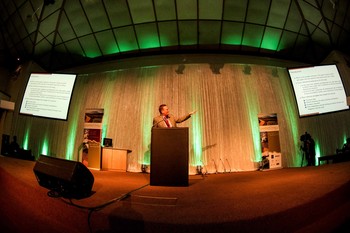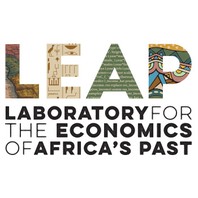Laboratory for the Economics of Africa's Past (LEAP)
The study of African economic history is overdue for revival. During the last 50 years much has been said and written about underdevelopment and poverty in Africa. Economists can now examine the historical roots of these problems, given our new statistical techniques and access to large databases of quantitative information. We can begin to offer fresh and bold answers to one of the basic questions of our age: Why is Africa lagging behind?

In recent years international economists, including Nobel prize-winners, have stressed the importance of studying economic history to help explain how economies develop and suggest solutions to today's problems. Leading US economics departments - Harvard, MIT, UCLA, Stanford - are reaffirming the importance of economic history in the training of professional economists. A prime example of the practical relevance of economic history is the acknowledgement by Ben Bernanke, Governor of the US Federal Reserve, of the value of his research on the 1930s Great Depression in understanding and responding to his country's 2007/09 Great Recession.
To date, economic history research has been sparse in Africa, but now African economic historians have a chance to join the global revival in this field. African economic history was written largely by scholars based at overseas Western institutions. We in Africa now need to become involved in researching our history for ourselves. Mapping Africa's economic past helps us understand what happens today and offers lessons from the past that could be central to solutions for the future. Read more about the renaissance in African economic history here.
Recent developments suggest that the Department is well positioned to become the first African nexus for quantitative economic history research.Several staff members of the Department are investigating topics in African economic history and findings have been published in some of the premier economic history journals. Over the past few years, members of the economic history research group have published a several dozen peer-reviewed journal articles in leading international journals. No other economics department in Africa can boast this number of high quality economic history publications. Much of this research success springs from staff and student attendance at numerous national and international workshops and conferences.
The economic history group hopes to become a locus for capacity building of African economic historians. To achieve this, the Department has introduced a postgraduate course in economic history - one of only two such programmes at South African universities. We aim to stimulate interest in economic history and in this way expand the pool of active researchers in the field.
The Department has appointed Jan Luiten van Zanden, the president of the International Economic History Association, as extraordinary professor in the Department from 2010 to 2014. We also have three research associates, Martine Mariotti (Australian National University), Leigh Gardner (London School of Economics), Julius Agbor (Brookings Institute, Washington) and Alexander Moradi (Sussex University). Staff members of the Department have been at the forefront of efforts to coordinate economic history research in southern Africa and to forge links with scholars in other African countries. Sophia du Plessis is the president-elect of the Economic History Society of Southern Africa and Johan Fourie organizer of the Economic Research Southern Africa (ERSA) workshops in economic history.
The effort to establish a strong footprint of African economic history at Stellenbosch University has also been recognized by national and international peers. In 2008, the Department won the bid to host the triennial World Economic History Congress in July 2012, the largest international gathering of economic historians. This event, attended by more than 800 international delegates, was a huge success and positioned Stellenbosch as a leader in the field of African economic history.
This momentum led to the creation of the Laboratory for the Economics of Africa's Past (LEAP) in 2015. Visit the LEAP website or like the LEAP Facebook page for regular updates about our activities.
Given the importance of South Africa's past for building South Africa's economy of the future, we hope to enable more PhD graduates to go on to become specialised economic historians with well-grounded lessons to offer this country's policymakers.
Login
(for staff & registered students)
BER Weekly
23 Jan 2026 Free Weekly Review | Number 3 | 23 January 2026This report covers the key domestic and international data releases over the past week....
Read the full issue
BER Weekly
23 Jan 2026 Free Weekly Review | Number 3 | 23 January 2026This report covers the key domestic and international data releases over the past week....
Read the full issue
 Research
Research
